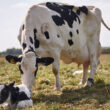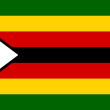Traceability of animals has become a priority to ensure consumer confidence.
Zimbabwe is the first African country to see the roll out of E-Livestock Global’s traceability system, bringing end-to-end visibility to the cattle supply chain. This innovative solution is expected to bring new hope for farmers, while helping the country regain its lucrative beef export market to support economic recovery.
The solution, powered by Mastercard’s blockchain-based Provenance solution, seeks to empower Zimbabwean farmers to prove the origin and health records of their cattle, while reducing risks to buyers.
The lack of a traceability system has seen Zimbabwe unable to export beef to lucrative markets in Europe and the Middle East in recent years, reducing export earnings from beef, which are important to the country’s economy.
To understand more on E-Livestock Global solution which is currently in ‘soft role out’ phase, Maricho Magazine (MM) publishes this exclusive conversation with E-Livestock Global Founder and President Max T. Makuvise (MTM).
MM: Kindly share with us what the E-Livestock Global solution is all about and what it seeks to achieve? Include the partners involved and their functions?
MTM: The solution seeks to provide traceability during the life of the animal. Recording all major events
- Birth and registration
- Dipping
- Dosing
- Vaccinations
- Change of ownership
- Location of all these events
The E-Global Solution brings end-to-end visibility to the cattle supply chain. Commercial farmers and dipping officers tag each head of cattle with a unique, ultra-high frequency RFID tag – as mandated by the Ministry of Agriculture – and register it and its owner onto the solution. Each time the animal gets dipped, vaccinated or receives medical treatment, the tag records the event onto the traceability system.
Leveraging Mastercard’s award-winning Provenance solution, E-Livestock Global records these events to maintain a secure and tamper-proof trail of each animal’s history. This, in turn, supports the entire supply chain with trusted, transparent and verifiable data. For farmers, it provides an irrefutable record that proves ownership, supports sales and exports, as well as allows them to obtain a loan, using their cattle as collateral. For buyers, it enables them to efficiently manage their operations and guarantee product quality to their customers.
Mastercard continues to bring more transparency and traceability to food systems and has already integrated its blockchain provenance solution with other companies that enable food supply chains around the world.
MM: What is the uptake level by farmers?
MTM: We have tagged over 10,000 animals and the number of orders is growing daily. We have concentrated on commercial farmers as the initial recipients as it is easier to deal with larger owners but the solution was designed with the rural farmer in mind. The uptake is definitely in line with expectations. We expect to be on 20,000 by year end. We did a pilot and now we are on soft role. Once that is done we will go on a global role out. Trials are starting in the US soon. Any farmer with cattle qualifies, although we do suggest that rural farmers are organised at dip tank level.
MM: Does the solution require data? If data is required what impact do you foresee on the participation of rural farmers given Zimbabwe’s low penetration levels?
MTM: The system runs in an online/offline mode. If there is no signal it can still record events which are then submitted to the blockchain when they come into signal range. There is a data cost but it is small because of the type of data that does not include sound or pictures.
MM: Data security is a major concern, what security measures are in place to ensure that a farmer’s data is secure?
MTM: The data sits on the MasterCard blockchain. They are one of the largest financial transaction companies on the planet. If you cannot trust their systems I am not sure who else to turn to. The payments technology giant consistently ranks as one of the top blockchain patent filers in the financial services industry with 106 approved blockchain patents and 278 pending applications – many of which directed to technologies that support digital currencies.
The data is stored on the blockchain. If we are responsible for the leak we will take responsibility, however, we cannot rule out information held by third parties being the leak e.g. a vet department officer who is legally entitled to certain information.
MM: While E-Livestock Global solution “brings end-to-end visibility to the cattle supply chain” what is the cost to the farmer?
MTM: The cost to the farmer is USD2 for each tag which should remain on the animal for its natural life. The farmers then pay USD0.61 per annum for each animal in the system. Commercial farmers will pay USD1.00. The first year of usage is free.
MM: What role do you see ICT playing in the growth of the livestock industry?
MTM: ICT will pay a big role as traceability from conception to consumption is key. If we want to export beef again we will need to institute such programmes. The demand for this system outside of Zimbabwe is huge and expect roll outs globally over the next 12 months. If we are ever going to export any animal, we are going to need traceability. We can track the animal’s entire life through.











